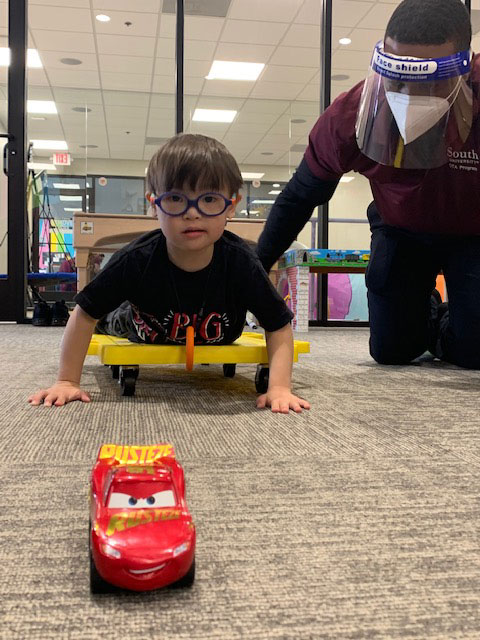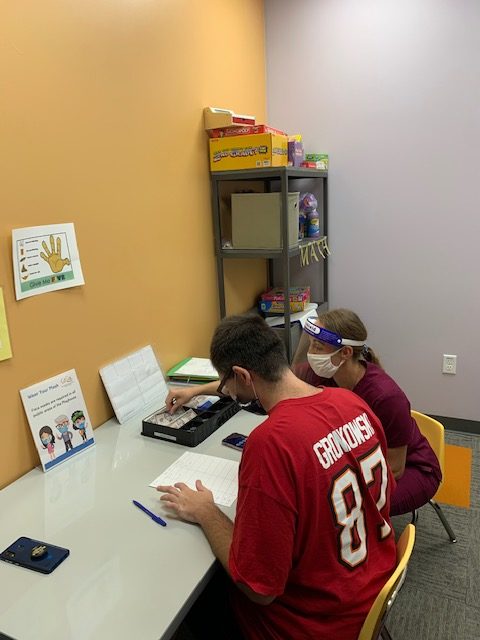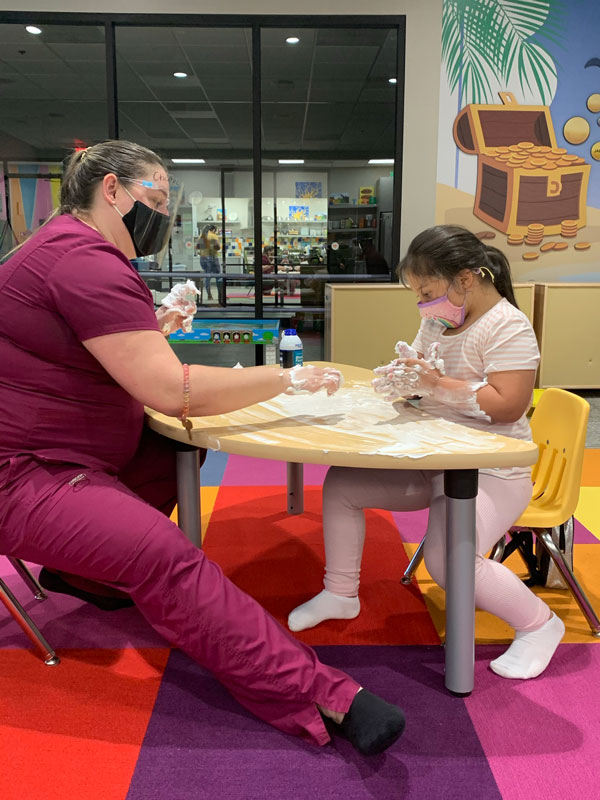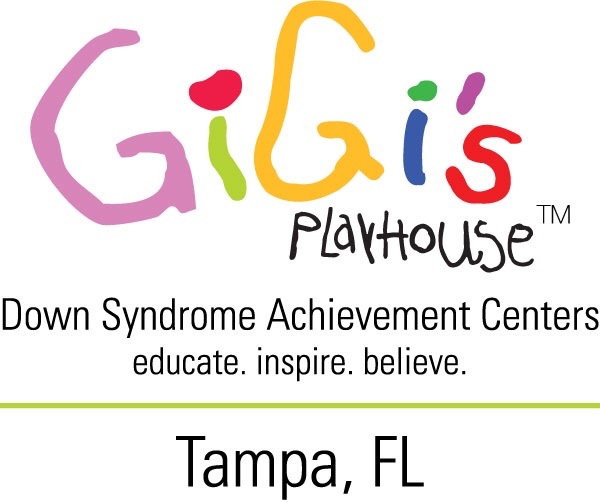What is Occupational Therapy?
Occupational Therapy (OT) is a profession that promotes independence in activity of daily living, development of gross and fine motor skills and coordination, and development of play, school, psychosocial and vocational skills.
GiGi’s Playhouse and South University Occupational Therapy Assistant Students
OTA students from South University, Tampa will be in the playhouse providing free, one on one OT sessions at various times throughout the year. Please stay tuned for announcements and more information on when the sessions will take place.

Some of the skills addressed by OT:
Gross motor coordination and postural stability development: Typical development occurs starting with gross motor (large muscle) coordination and occurs from proximal to distal (from the center of the body out to the extremities). Postural stability and gross motor coordination are needed for walking, running, playing various sports, riding a bike and the use of both hands in everyday activities. Children with postural stability (low tone) and gross motor incoordination, often times have poor core strength, balance and coordination, which can affect their participation in school and daily activities (feeding, dressing, bathing etc.). OT works on building foundational skills, building strength, improving balance, coordination, bilateral coordination and postural stability.

Fine motor coordination skills development: Fine motor coordination skills (small muscle development) are required for tasks such as handwriting, cutting, manipulating fasteners and participating in daily schoolwork. Children with fine motor coordination issues often times have difficulties with holding a writing utensil, handwriting, using both hands together for tasks, cutting, manipulating buttons and fasteners for dressing, and other tasks that require precision with the hands. OT works on fine motor development through a variety of activities to improve grasp, object manipulation, handwriting, cutting and manipulation skills.
Functional Skills Development: Functional skills are those activities performed every day such as dressing, cooking, bathing, eating, chores, money management, social skills, schoolwork, work related skills etc. OT works on functional skills development by addressing daily activities in treatment to help individuals become more independent in daily life, work, school and work skills.

Sensory Integration: Sensory experiences include touch, movement, body awareness, sight, sound, smell, taste and the pull of gravity. The process of the brain organizing and interpreting this information is called Sensory Integration. Sensory Integration (SI) provides a crucial foundation for later, more complex learning and behavior. For some children, sensory integration does not develop as efficiently as it should. When this process is disordered, a number of problems in learning, development and behavior may become evident. OT can help identify areas of sensory dysfunction and works on regulating sensory systems that may be hyper-responsive, or hypo responsive to sensory input.
Primitive Reflex Integration: Primitive reflexes are the reactive actions that a newborn baby uses to survive in the beginning stages of life. These reflexes are essential in allowing the body to develop properly, and in order for this to happen, these reflexes must be integrated before childhood. If these reflexes are retained and milestones of development are missed, the child may experience some developmental delays as well as significant difficulties with various functional skills later in life. OT works on identifying primitive reflexes that have been retained and strategies to help integrate them through therapeutic interventions.
Contact tampa@gigisplayhouse.org to learn more.
